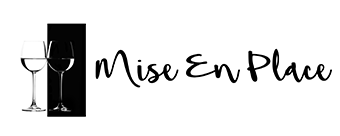Turning Complaints into Compliments
The Importance of Effective Complaint Handling
A Critical Aspect of Guest Relations
Effective complaint handling is a vital skill in the hospitality industry, where guest satisfaction is paramount. When guests bring complaints, they offer the hotel a valuable opportunity to address their concerns, rectify any service shortfalls, and demonstrate a commitment to high-quality service. Skillfully handled complaints can not only resolve immediate issues but also convert dissatisfied guests into loyal patrons. This process is crucial in building trust and can significantly influence a guest’s decision to return or recommend the hotel to others.
The Impact on Hotel Reputation
In today’s digital world, where online reviews and social media play a significant role in shaping a hotel’s reputation, managing guest complaints effectively is more important than ever. A single negative review can have far-reaching consequences, but a complaint that is handled well can lead to positive feedback and enhance the hotel’s reputation. Effective complaint management shows potential guests that the hotel values guest feedback and is committed to providing a high standard of service.
Strategies for Effective Complaint Handling
Active Listening and Empathy
Active listening is the cornerstone of effective complaint handling. It involves fully focusing on the guest, understanding their complaint, and acknowledging their feelings. Demonstrating empathy and understanding can help de-escalate potentially tense situations and make the guest feel heard and valued. This empathetic approach should be genuine and aim to understand the root cause of the guest’s dissatisfaction.
Timely and Appropriate Responses
The speed and nature of the response to a complaint are critical. Quick responses show guests that their concerns are taken seriously and that the hotel is proactive in resolving issues. The response should be tailored to the specific complaint and the guest’s needs, whether it involves an apology, a refund, an upgrade, or another form of compensation. The key is to find a resolution that satisfies the guest and is in line with the hotel’s policies and capabilities.
Training Staff in Complaint Handling
Equipping Staff with the Right Skills
Comprehensive training in complaint handling is essential for all hotel staff. This training should cover various aspects of communication, including how to listen actively, respond empathetically, and offer effective solutions. Staff should also be trained in conflict resolution and how to maintain composure under pressure. Empowering staff with the authority to make certain decisions on the spot can lead to quicker and more effective resolution of complaints.
Creating a Supportive Environment for Staff
Handling guest complaints can be challenging and emotionally taxing for staff. Creating a supportive work environment where staff feel valued and supported is crucial. This includes providing regular training, constructive feedback, and a clear understanding of the hotel’s policies and procedures for complaint handling. Encouraging open communication and offering support in difficult situations can help staff handle complaints more confidently and effectively.
Measuring the Effectiveness of Complaint Handling
Analyzing Feedback and Reviews
Regular analysis of guest feedback, including online reviews and direct comments, is essential in assessing the effectiveness of the hotel’s complaint handling. Positive feedback or mentions of satisfactory complaint resolutions can indicate success, while recurring complaints in certain areas may highlight opportunities for improvement. Tracking changes in guest satisfaction scores over time can also provide valuable insights.
Continuous Improvement in Service Recovery
The ultimate goal of complaint handling is to continuously improve service recovery processes. This involves regularly reviewing and refining complaint handling protocols, incorporating guest and staff feedback, and staying updated on industry best practices. Regular training sessions and workshops can help staff stay skilled in the latest techniques and approaches to complaint handling.
The Future of Complaint Handling in Hotels
Leveraging Technology in Complaint Management
Technology can play a significant role in enhancing complaint management. Implementing customer relationship management (CRM) systems can help track and analyze complaints, ensuring that they are addressed promptly and effectively. Automated systems, such as chatbots, can provide initial responses and gather information, allowing human staff to focus on more complex complaint resolutions.
Building a Culture of Service Excellence
Effective complaint handling should be part of a broader culture of service excellence within the hotel. This culture involves viewing complaints not as nuisances but as opportunities to improve and excel. Encouraging staff to view complaint handling as a vital part of their role and rewarding excellent complaint management can foster a positive attitude towards complaints. This culture shift can lead to improved guest satisfaction, enhanced loyalty, and a stronger overall brand reputation.








